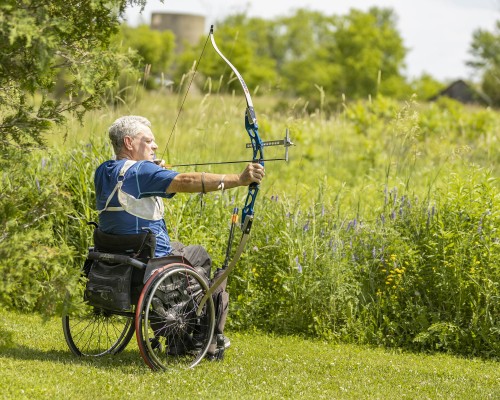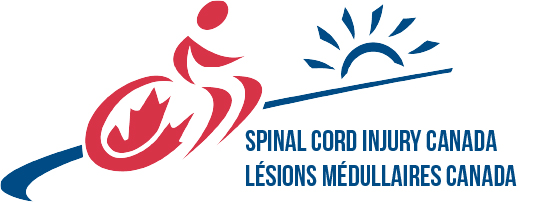When Daily Activities are a Pain in the… Shoulder

Ouch! Shoulder pain is all too common after a spinal cord injury, affecting as many as seven or eight in every 10 people. It can be a mild annoyance, or it can be excruciating, interfering with sleep, propelling your wheelchair or turning your steering wheel.
There are several possible reasons why your shoulders hurt. These are the injuries most often seen in people with SCI:
- Rotator cuff tear. Your rotator cuff, which is a bunch of muscles and tendons, helps you raise and rotate your arm while holding the head of your arm bone securely in your shoulder socket. Rotator cuff damage is to blame for most shoulder pain in people with SCI.
- Tendonitis. The tendon connected to the biceps muscle in your upper arm can become inflamed.
- Impingement syndrome. This develops when the rotator cuff gets pinched or squashed by bones around the shoulder joint.
- Osteoarthritis. The cartilage can wear away in your shoulder joints, most often where your collarbone and shoulder blade come together.
- Shoulder subluxation. Your shoulder joint can become partially dislocated, especially if the connective tissue around it is already damaged.
An accidental fall can certainly cause a shoulder injury, but very often the damage develops gradually over time. No wonder getting older is one of the risk factors! Here are some typical contributing factors to shoulder problems in people with SCI:
- Wear and tear. You may be using your shoulders much more often, and for a wider variety of tasks, than someone without a spinal cord injury. Pushing your wheelchair is a classic example, but isn’t the only potential cause.
- Weight-bearing. Your arms and shoulders weren’t designed to support all of your weight, but you may be routinely using them this way as you transfer in and out of your wheelchair.
- Reaching awkwardly. If you’re often sitting, you may be constantly grabbing items above your head, or you may be reaching up for a trapeze bar.
- If you’re slouching, leaning or twisting to compensate for poor balance or muscle strength as you reach, it’s even harder on your shoulders.
Besides older age, researchers have identified a few other risk factors for shoulder pain after an SCI:
- Quadriplegia or complete paraplegia (versus incomplete paraplegia)
- Spasticity
- Heavier body weight
- Being female
- Having more limited shoulder movement or less shoulder muscle strength after your initial injury
Medication may help with shoulder pain, but there are plenty of non-drug approaches to consider that might treat, stabilize or even prevent it.
- Try shoulder strengthening and stretching exercises (consult your doctor or physiotherapist).
- Apply heat or cold packs.
- Improve your posture and stability, for instance with a different cushion or a higher backrest.
- Try assistive devices, like reachers or a Hoyer lift, to ease the burden on your arms and shoulders.
- If you’re overweight, consider losing a few pounds.
- Never allow people to yank your arms. If you have a high-level SCI, always make sure your arms are resting on something, not hanging down.
Importantly, if you use a manual chair:
- Make sure the wheels turn smoothly and that the tire pressure is adequate.
- Think about how you’re pushing your chair. Use longer, smooth pushes, concentrating on keeping your hands on the rims for more time. A 2021 Swiss study found that people with paraplegia were more likely to have shoulder pain if they pushed their chairs with short, jerkier movements.
- You might even consider using power-assist wheels or a power wheelchair.
Rotator cuff surgery should be considered a last resort. The recovery would be a huge disruption to your day-to-day life, and there’s not enough research yet about the outcomes in people with SCI. The surgery might not actually be that helpful in the long term if you continue to hurt your shoulders after going back to your regular routines.
But that doesn’t mean there’s no point in seeing your healthcare provider about your sore shoulders. Your doc may have ideas for decreasing the pain, controlling any swelling, or making lifestyle changes that could make all the difference. You need your shoulders, so help them out!
